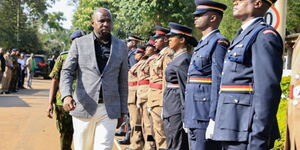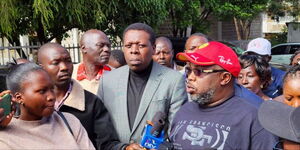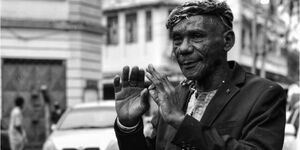Former Attorney General Charles Njonjo's exit from national politics was loud and messy.
Njonjo was pushed out of the national scene in 1985 after he resigned from KANU and lost his parliamentary seat.
Njonjo, who wielded massive political power during his time as attorney general was a feared man. The ever-cautious President Daniel Moi was worried about the rising political power of Njonjo, who at one point had termed himself co-president.
So powerful was Njonjo that he occasionally rode in the president’s official limousine during Mzee Kenyatta’s time.
He walked both the legal and political world like a colossus, scheming on Kenyatta’s succession and was a key factor in the ascension of Moi to presidency against the Kiambu mafia wishes.
In the period after the 1982 coup attempt, Moi was entrenching himself in Kenyan politics and getting rid of opposition elements.
At the same time, Njonjo was a man on the rise, after leaving the office of Attorney General to vie for Kikuyu MP in 1980.
He won the seat and was subsequently appointed to cabinet as minister for Constitutional Affairs. Njonjo's fast rising star and foreign support posed a threat to Moi.
“Njonjo represented a stumbling block if Moi was ever to be recognised as an effective head of state both at home and abroad. A parting of ways became inevitable,” states Moi’s biographer Andrew Morton in his book Moi: The making of an African Statesman.
The entry of Mr Njonjo into politics brought him into conflict with Vice-President Mwai Kibaki and tensions within the cabinet were reported by the local press.
A Nation article from September 1, 2014 noted that Kibaki told Njonjo he was suspected of being a traitor and would be “shown no mercy.”
Njonjo was accused of aiding the plotters of the failed 1982 coup attempt but he dismissed the accusations as witchhunting.
On July 29 of the same year, Butere MP Martin Shikuku tabled papers in Parliament alleging that Njonjo had business links to apartheid South Africa, had smuggled arms into the country and had bribed MPs to support him.
President Moi, therefore, formed a Judicial committee to review his conduct.
Njonjo was suspended from cabinet and from KANU immediately and resigned from parliament the following day.
He retired to a quiet life after his murky exit from politics. President Moi later pardoned him in 1998.












